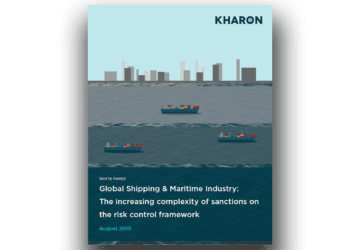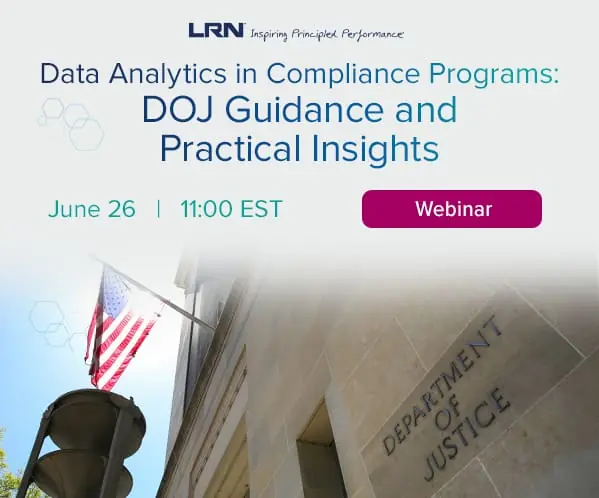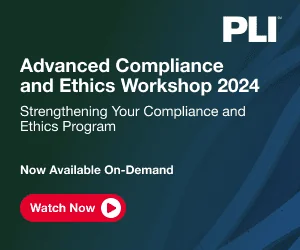Identification of “Red Flags” for Possible Violations of Key U.S. Laws for Companies Operating Overseas
American companies operating overseas are conducting business in a highly challenging regulatory and enforcement environment. Despite the worldwide economic downturn, the US government expects companies to maintain all regulatory compliance with US laws, regulations, and rules, while also bolstering internal financial and accounting controls and processes.
Stricter oversight, tighter accountability, and tougher regulations are being promulgated for virtually every industry sector. Employees need help keeping up with the legal and regulatory requirements that affect their jobs.
A list of “red flags” in key subject areas is a tool that can be helpful to employees who have already been trained in a particular legal compliance risk area. A “red flag” is an activity or condition that increases the likelihood of a possible violation of law or company policy.
While the primary focus of this summary will be on FCPA anti-bribery “red flags” described below, it may also be useful to list in one document some of the other recognized “red flags” that arise in key US legal compliance areas when companies are operating or shipping overseas.
- Foreign Corrupt Practices Act (“FCPA”) : Generally, this law makes it a federal crime to promise, offer, or make a bribe, directly or indirectly, to a foreign government official in order to obtain or retain business or secure an improper business advantage. It also requires U.S. and non-U.S. companies that trade securities on US stock exchanges to have accurate books and records, and to maintain an adequate system of internal financial and accounting controls.1
- US Trade Sanctions/ Export Controls: Trade sanction laws and regulations advance US policy objectives and influence a foreign government’s conduct in particular areas of US concern (e.g., human rights, nuclear proliferation, terrorism) by restricting or prohibiting trade by US persons with those foreign governments, or agents of those governments, or involving the foreign countries. Export control laws govern the export and re-export of US goods, software and technology from the US to certain end destinations, for certain end uses, and by certain end users in order to advance US national security, homeland security, anti-proliferation, and economic goals. The import and export of defense-related articles and services on the US Munitions List are also restricted by the International Traffic In Arms Regulations.
- USA Patriot Act: This law and related regulations expand US law enforcement’s ability to monitor, detect, and punish terrorists, and terrorist financiers, as well as money laundering activity.2
- US Anti-boycott Regulations: These laws and regulations prohibit US companies from supporting a boycott that is not sanctioned by the US government; namely, the Arab League Boycott of Israel. Companies are required to report boycott requests to the US Department of Commerce BIS, and taxpayers are also required to report such requests with their tax return filings.3
The following summary of “red flags” is not a primer on any of the above US laws. Rather, it assumes that the reader is aware of the general requirements of each of these US legal compliance regimes for multinational companies and their employees, but that the employees would also benefit from other legal compliance “tips” in the form of summarized “red flags.”
If employees, officers, or directors who observe these “red flags” are timely in notifying their company’s senior management, compliance personnel, or the Legal Department about the “red flag”, US companies will have a “head start” on resolving or addressing some of the legal risks associated with the occurrence of the “red flag.” These lists are illustrative, but not exhaustive.
Red Flags for FCPA/Anti-bribery Misconduct or Compliance Risk
“FCPA Red Flags for Corrupt Business Practices”
- Third Party refuses to certify compliance with antibribery or FCPA requirements
- Third Party refuses to complete agent/ consultant/third party questionnaire regarding relationship with or interests involving foreign government officials
- Third Party does not appear to be qualified to perform the duties for which it is engaged to assist your company
- Third Party is related to a government official
- Country has a reputation for corruption and bribery
- The industry has a history of FCPA and anticorruption problems
- Breakup of a company or association with one or more foreign companies is unexplained or inadequately explained
- Requests for commissions to be paid in a third party country, to a third party, or in cash or untraceable funds
- Heavy reliance by party on political or government contacts as opposed to knowledgeable staff and investment of time to promote the Company’s interests
- Refusal or inability to develop or implement a market strategy
- A desire to keep third party representation secret
- Relationship problems with other foreign companies
“Red Flags” For FCPA Recordkeeping and Accounting Violations
- Vague, non-specific description for payments made in entries
- Documents conceal the true identify of an in-country representative or agent
- Payment descriptions that do not correspond to the appropriate account
- General purpose or miscellaneous accounts that can be used to hide improper payments
- Over-invoicing or false invoices
- Unrecorded accounts or transactions
- Travel and expense forms with incomplete information that are used to obtain cash for improper payments
- Submission of false or inaccurate expense account reports
- Misstatement of transactions, e.g., recording a payment to the wrong payee
Red Flags for Export Controls/Sanctions Misconduct And Legal Compliance Risk
The complex rules that govern shipping or transferring US goods, technology, technical data, and munitions, etc., are the topic of multi-day legal compliance conferences and will not be detailed here. However, monitoring for the “red flags” that signal a possible export controls violation can be done during the same process in which employees vet and monitor for FCPA “red flags, when practicable and appropriate.
- The customer or its address is similar to one of the parties found on the Commerce Department’s [BIS’s] list of denied persons, or on the Treasury Department’s OFAC Specially Designated National’s List.
- The customer or purchasing agent is reluctant to offer information about the end-use or end-user of the item.
- The product’s capabilities do not fit the buyer’s line of business (e.g., an order for sophisticated computers for a small bakery).
- The item ordered is incompatible with the technical level of the country to which it is being shipped (e.g., semiconductor manufacturing equipment being shipped to a country that has no electronics industry).
- The customer is willing to pay cash for a very expensive item when the terms of sale would normally call for financing (e.g., letter of credit).
- The customer has little or no business background.
- The customer is unfamiliar with the product’s performance characteristics, application, and support equipment but still wants the product.
- Routine installation, training, or maintenance services are declined by the customer.
- Delivery dates are vague, or deliveries are planned for out of the way destinations.
- A freight forwarding firm or export company with no apparent connections to the purchaser is listed as the product’s final destination.
- The shipping route is abnormal, non-economic, or circuitous for the product and destination.
- Packaging is inconsistent with the stated method of shipment or destination.
- The end-destination is Iran, Sudan, North Korea, Cuba, Burma, Syria or another country with either OFAC or BIS list-based or activity-based restrictions
- The customer is willing to pay well in excess of market value for the commodities.
- Firms or individuals from foreign countries other than the country of the stated end-user place the order.
- “Fragile” or other special markings on the package are inconsistent with the commodity described.
- When questioned, the buyer is evasive and especially unclear about whether the purchased product is for domestic use, for export, or for reexport.4
“Red Flags” for Anti-money Laundering/ Anti-terrorism Risk
The USA Patriot Act was passed shortly after September 11, and expanded the US government’s ability to monitor and detect money laundering and terrorist financing activity. It also placed new requirements on certain US industries to develop a compliance program designed to detect, monitor, and punish money laundering and terrorist financing. The below ”red flags” are useful for detecting money laundering or other illegal conduct in any industry.
- Party is vague or illusive about source of funds for transaction or activity.
- Party provides information that is irrational or irregular for the business or industry regarding the end-use and end-destination of the funds.
- Party provides incomplete, false, or misleading business contact information.
- Party has large sums of cash or currency available for the transaction or business activity with no corresponding business that generates the high revenue stream.
- Party is located in, or regularly does financial dealings in, foreign country with strong public reputation for antimoney laundering, terrorist financing activities, or narcotics trafficking.
- Party seeks to redeem funds or “cash out” of fixed term financial instruments for illogical, non-economic reasons, and is unconcerned about related penalties, fees, and taxes.
- Due diligence reveals falsified information from party.
- Party refuses to certify or agree to compliance with applicable laws or your company policies.
- Party’s books and records are not accurately maintained, and large cash in-flows and out-flows are not reconcilable with account activity.
- Party seeks payment of proceeds in a foreign country account other than the location of the party’s business.
- Party is a senior political or foreign official who wants to open account in foreign official’s name, not for business entity.
- Party’s business structure is complex web of business entities with little apparent relationship to each other.
- Party is, or has been, the subject of law enforcement scrutiny for fraud, narcotics trafficking, arms trafficking, or organized crime activities.
“Red Flags” For Anti-boycott Compliance Risk
Supporting or complying with a foreign boycott that the US government does not sanction can result in loss of export privileges, exclusion from practice, fines and penalties, as well as loss of tax benefits, among other sanctions. The US anti-boycott laws primarily focus on The Arab League’s Boycott of Israel, and the below red flags should cause employees to contact a supervisor or the Legal Department.
- Contract language or document from foreign business refers to prohibitions regarding Israel.
- Contract language, form or financial document from foreign company appears to discriminate against a specific race, religion, sex, or nationality.
- Document sent to your company from foreign company (with which your company intends to do business) seeks information about business relationships with Israel.
- Document from foreign company seeks information about, or refers to, business relationships or activities with “blacklisted countries.”
- Contract language, shipping document, or checklist references to “The Arab League.”
- Subsidiary is requested to sign document that includes a provision prohibiting Israel.
Conclusion
Criminal and civil penalties can be imposed for violations of the FCPA anti-bribery provisions, books and records provisions, as well as export controls laws, the USA Patriot Act and anti-money laundering regulations, and anti-boycott laws. Companies operating, shipping, or marketing overseas should know and respond to “red flags” that signal possible serious legal exposure for their employees, officers, directors, and third-party relationships.
Having some of the above international compliance “red flags” in one document could help reduce the risk of future violations in those areas.
**********
About the Author

Sharie Brown represents multinational corporations and conducts internal investigations, audits and M&A due diligence worldwide in the areas of the FCPA, OFAC compliance and export controls, corporate ethics and compliance, World Bank procurement frauds and other financial crimes. She was a federal prosecutor before joining Mobil Oil Corporation as senior counsel, where she also served as the company’s ethics and compliance officer.
———-
1 – See 15 U.S.C. §§ 78dd-1, 78dd-2, 78dd-3, et seq.; 15 U.S.C. § 78m, et seq.
2 – The “USA Patriot Act” refers to “The Uniting And Strengthening America By Providing Appropriate Tools Required To Intercept And obstruct Terrorism Act of 2001. “Pub. L. No. 107-56, 115 Stat. 272 (2001).
3 – 15 C.F.R. § 760, et seq. Information on antiboycott compliance is also available on the US Department of Commerce website address: http://www.bis.doc.gov/complianceandenforcement/antiboycottcompliance.htm.
4 – The export controls list of “red flags” and other information on this topic is available at the Department of Commerce Bureau of Industry and Security website address: http://www.bis.doc.gov/enforcement/redflags.htm.












